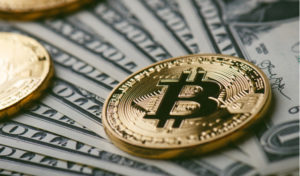With Bitcoin prices diving, it’s worth revisiting this post from December 1, 2017.

Image used under license from Shutterstock.com
Bitcoin is being considered by some as their emergency stash. For me, when the power goes out, I prefer having dollars on hand. ATMs will be out of commission, and depending on road conditions, even if my bank is open, I’m not sure I’ll be hitting the streets to make a withdrawal.
One of the many hurdles bitcoin faces is frictionless exchange. It doesn’t have the general acceptance by society yet like the dollar, and to achieve that acceptance will be a monumental task.
In an emergency situation, I want to be able to have cold hard cash on hand that doesn’t require electricity for it to work. Yes, bitcoin ownership can be proven with a printout, but what if the party you’re buying something from has never heard of it? There’s no trust. And by the time you explain what it is, you’ve lost valuable time—a rare commodity in times of trouble.
The more I learn about Bitcoin blockchain (not the currency) the more I realize how important it will be. No way am I depending on bitcoin for my emergency cash though—at least not yet.
E.J. Smith - Your Survival Guy
Latest posts by E.J. Smith - Your Survival Guy (see all)
- Rule #1: Don’t Lose Money - April 26, 2024
- How Investing in AI Speaks Volumes about You - April 26, 2024
- Microsoft Earnings Jump on AI - April 26, 2024
- Your Survival Guy Breaks Down Boxes, Do You? - April 25, 2024
- Oracle’s Vision for the Future—Larry Ellison Keynote - April 25, 2024















